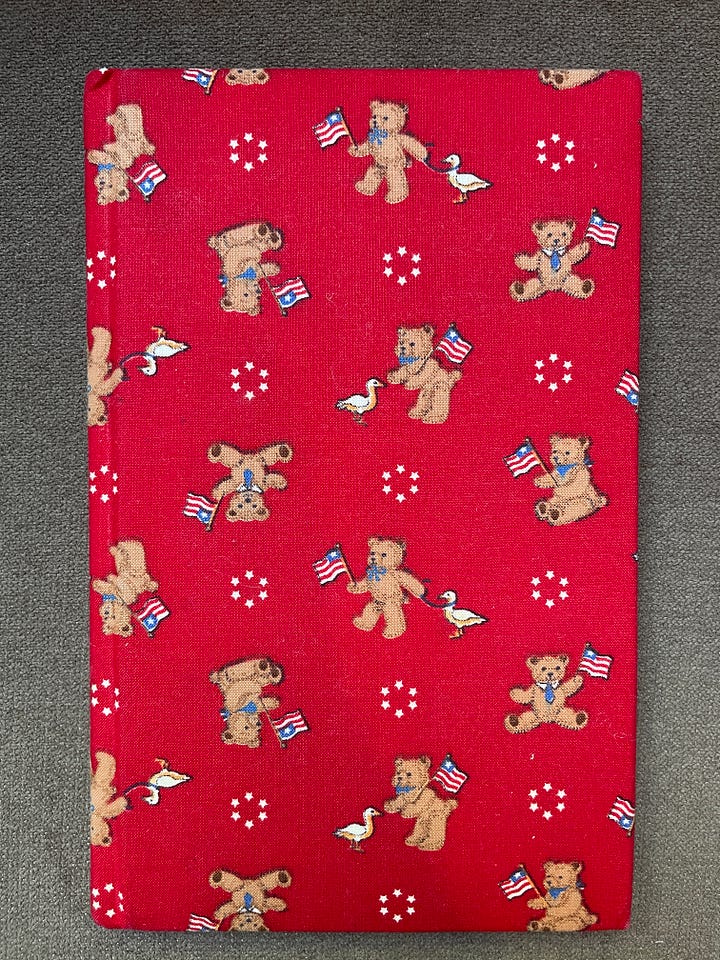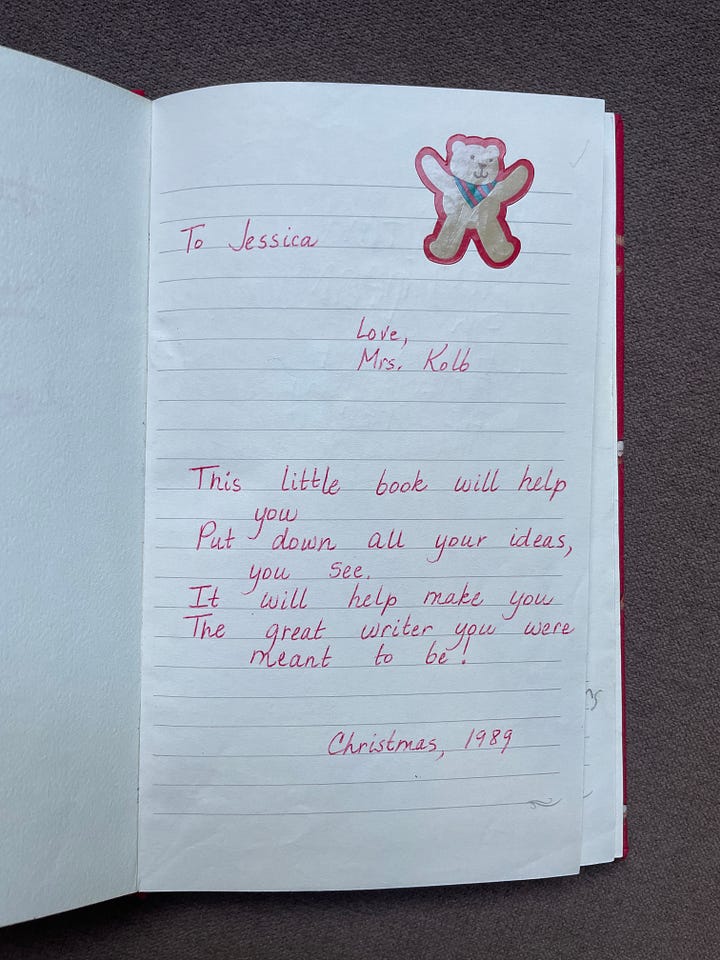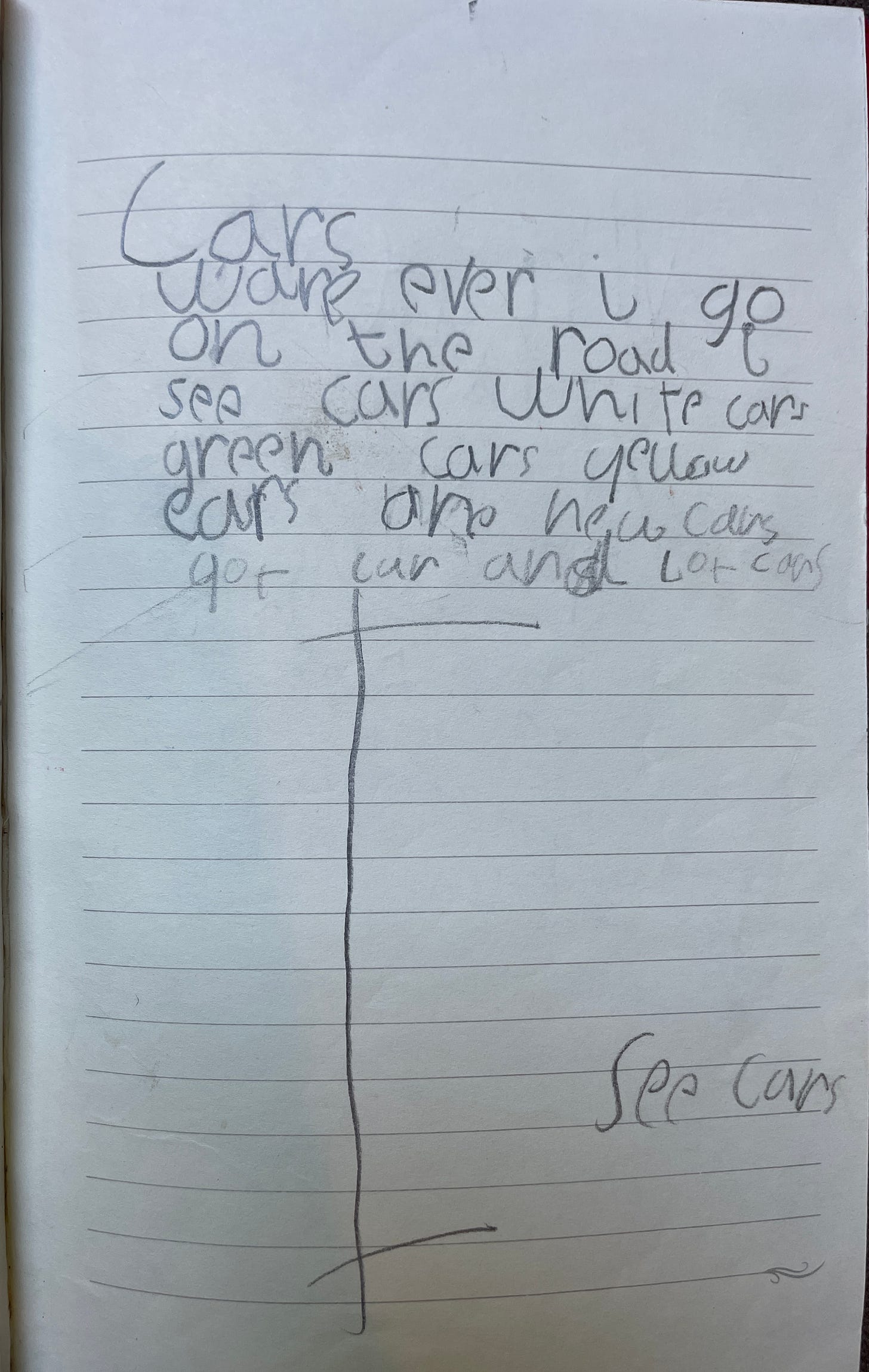Making Journaling Accessible
I was at my parent’s house recently and I found my very first journal that was given to me by my 1st grade teacher (thanks Mrs. Kolb). That was the start of something special for me. Since then, I have filled dozens of journals. I’m not someone who consistently writes every day or even every week. I go in and out of phases, but it is something that I know is there if and when I need it.
Part of my journaling journey has also included various phases for how I write. For example, when I was younger I would write cryptically so that know one would know what I was talking about (not that anyone was reading my journal, but it was a way for me to feel safe with my writing). Then later, for over a dozen years, I used only rhymes when journaling. I did this to make writing more interesting and so that one day it might be more fun to read.
If journaling is something you’ve always wanted to do, but it seems daunting or like something ‘other people do’, I'm hoping I can help it feel a bit more accessible for you. Or maybe you already journal, but want to think about it a bit differently.


Reasons to Journal
You don’t necessarily have to have a reason to journal, but if you’re looking for some guide posts, here are some suggestions.
Feeling anxious, worried, nervous, or stressed: The most common reason for my journaling is the desire to get something out of my body or head and onto paper. If I have a nervous feeling as I’m getting into bed, then I take a few minutes to journal. Sometimes I may not even know why I’m feeling nervous and there isn’t anything specific I plan on writing about. However, it’s a cue to me that I need to take a few minutes to just write.
Struggling with a specific issue: If there is something going on that is hard for me, then I take time to journal about it. Writing it out can help me process what I am experiencing.
Highlighting a big moment: Examples include my kids’ birthdays or a new job. I like to capture these in a quick journal entry just to note how I am feeling and to describe the situation a bit.
Feeling creative: I usually get a creative urge to journal when I’m on airplanes or traveling. Being somewhere new gives me a different perspective that I may want to capture.
A tool for making decisions: If I am struggling to make a decision, journaling can help provide me with more clarity about the issue. This has been especially helpful for me as I’ve navigated big career decisions. When I write for an extended period of time, some clarity eventually comes out.
Basic Guidelines
Guidelines for any and all journaling.
I personally prefer to write with a pen and a journal. If this is you, then find a pen and journal that you really like. Both should feel nice and fun to write with/in.
Let it flow. Start writing and see what comes out. You don’t have to have a plan for what you’re going to write about before you start.
Write as if no one will ever read it. Feel safe to write.
Don't worry about grammar, spelling, punctuation, or sentence structure.
Don’t judge it. If this is hard for you, then don’t read what you write. Write it, close it, and put it away.
No need to feel like you’ve written enough. When you feel done, you are done. Sometimes that can be just a few sentences.
Make It a Routine
Write When You Feel Like It
I personally prefer to write when I feel like it. This gives me more freedom. If you want to try this, think about the best time of day for you to journal and then strategically place your journal near you during that time.
For example, if you are a morning person and want to write when you wake up, put your journal next to a chair where you sit and drink your coffee. Or if you want to write as things come up at work, you could have it by your computer. Another option is to put your journal by your bed, so that you see it each night and are reminded to write.
You can experiment and figure out what works best for you. The goal here is to make journaling one step easier.
Structured Writing Time
If writing ‘when you feel like it’ sounds overwhelming and you prefer more consistency, then you can try a more structured approach. You can do this by scheduling time each day or each week to write. The routine can be a helpful way to get in the habit of writing and see what it feels like. For example you could write every day for 3 minutes or you could write every week for 10 minutes. If the timer goes off and you have more to say, keep writing. If not, you can put your pen away.
Ideas To Make It More Interesting
These are all things I’ve done at one time or another that can make writing more fun.
Create rhymes with your writing.
Write one word sentences. Write one word and then see what comes up next. An example: Earth. Create. Nature. Love. Together.
Set a timer: Write for 10 minutes without picking up your pen. No rules. Just conscious streaming. Whatever comes out, comes out.
Use different colored pens.
Journaling is a simple act that can have a big impact. It’s a tool that is always available and it can be there for whatever you may be going through. Give it a try and see how useful it can be for you. Notice for yourself how you feel after journaling (you could even journal about it).




